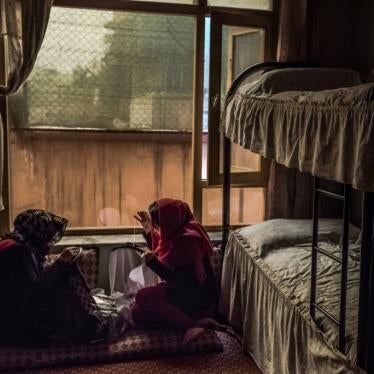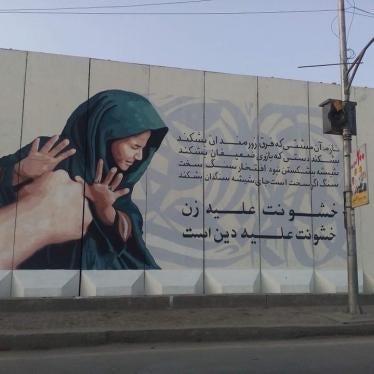On Saturday, something rare occurred in Afghanistan: a Kabul court convicted a man of raping a 10-year-old girl. Rapes are rarely reported and even less frequently tried in Afghan courts. But the victim, Hamida (her real name withheld to protect her identity), not only saw her rapist brought to court, but more surprisingly, saw him sentenced to a 20-year prison term.
Hamida’s ordeal began on April 30 when she went to help clean the mosque in her rural village in northern Kunduz province. The mullah there subjected Hamida to a vicious sexual assault and threatened to kill her and her family if she disclosed the crime. But the horrific injuries she suffered alerted her family. Concerns about Hamida’s safety – including fears that her own family had threatened her with an “honor killing”– prompted a women’s shelter run by a nongovernmental organization to take her into protective custody.
Hamida’s case speaks volumes about the perils facing Afghanistan’s women and girls. But the case is also emblematic of the challenges that women and girls face in getting the Afghan government and judiciary to enforce the laws designed to protect them and punish their victimizers. Although the landmark Law on Elimination of Violence Against Women (EVAW Law) went into effect in 2009, abundant evidence indicates the law is largely unimplemented and unenforced. Even worse, violence against women is rising to record levels, and because rape is often treated as zina – sex outside marriage – women who are the victims of sexual violence may be prosecuted and imprisoned for “moral crimes.”
The new administration of President Ashraf Ghani and Chief Executive Abdullah Abdullah has a responsibility to protect women and girls and ensure prosecution of those responsible or accused of sexual and domestic violence. President Ghani can start by immediately issuing a decree directing all police and prosecutors to fully and vigorously enforce the EVAW Law, and by speaking out publicly about the importance of access to shelter for women and girls fleeing violence. Ghani should also establish specialized EVAW prosecution units within the Attorney General’s Office in all provinces, and ensure that there is sufficient support to establish at least one women’s shelter in each province.
Despite winning the battle in court, Hamida faces many challenges. Her family withdrew her from school after the incident out of shame, and the shelter is trying to persuade them to allow her to attend school at a children's refuge. Her safety from relatives is not assured.
Unfortunately there will be more victimized girls like Hamida, and unless the government takes stronger and more effective action to protect them, the outcomes will be far less hopeful.






